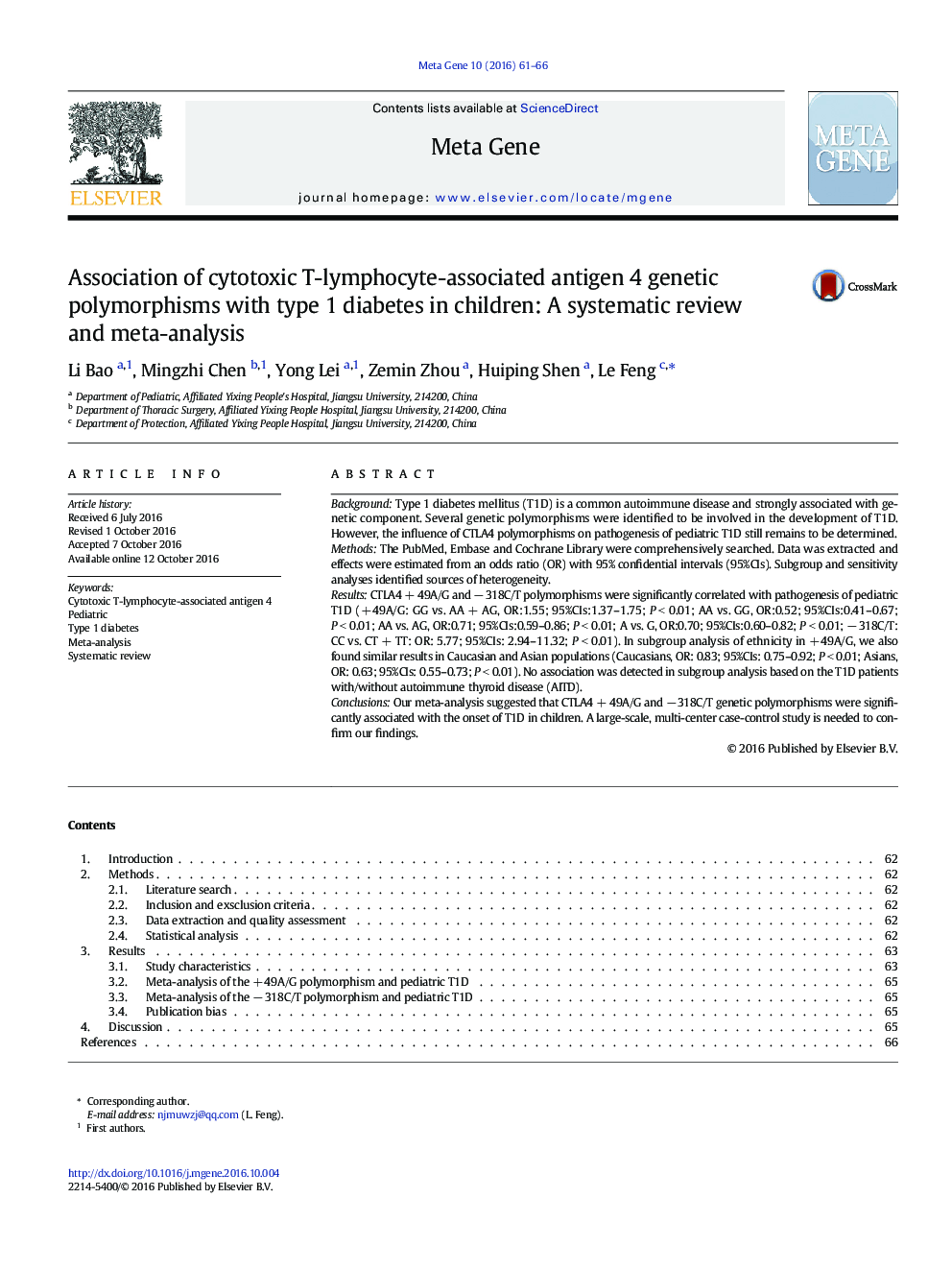| Article ID | Journal | Published Year | Pages | File Type |
|---|---|---|---|---|
| 5518436 | Meta Gene | 2016 | 6 Pages |
BackgroundType 1 diabetes mellitus (T1D) is a common autoimmune disease and strongly associated with genetic component. Several genetic polymorphisms were identified to be involved in the development of T1D. However, the influence of CTLA4 polymorphisms on pathogenesis of pediatric T1D still remains to be determined.MethodsThe PubMed, Embase and Cochrane Library were comprehensively searched. Data was extracted and effects were estimated from an odds ratio (OR) with 95% confidential intervals (95%CIs). Subgroup and sensitivity analyses identified sources of heterogeneity.ResultsCTLA4 + 49A/G and â 318C/T polymorphisms were significantly correlated with pathogenesis of pediatric T1D (+ 49A/G: GG vs. AA + AG, OR:1.55; 95%CIs:1.37-1.75; P < 0.01; AA vs. GG, OR:0.52; 95%CIs:0.41-0.67; P < 0.01; AA vs. AG, OR:0.71; 95%CIs:0.59-0.86; P < 0.01; A vs. G, OR:0.70; 95%CIs:0.60-0.82; P < 0.01; â 318C/T: CC vs. CT + TT: OR: 5.77; 95%CIs: 2.94-11.32; P < 0.01). In subgroup analysis of ethnicity in + 49A/G, we also found similar results in Caucasian and Asian populations (Caucasians, OR: 0.83; 95%CIs: 0.75-0.92; P < 0.01; Asians, OR: 0.63; 95%CIs: 0.55-0.73; P < 0.01). No association was detected in subgroup analysis based on the T1D patients with/without autoimmune thyroid disease (AITD).ConclusionsOur meta-analysis suggested that CTLA4 + 49A/G and â 318C/T genetic polymorphisms were significantly associated with the onset of T1D in children. A large-scale, multi-center case-control study is needed to confirm our findings.
